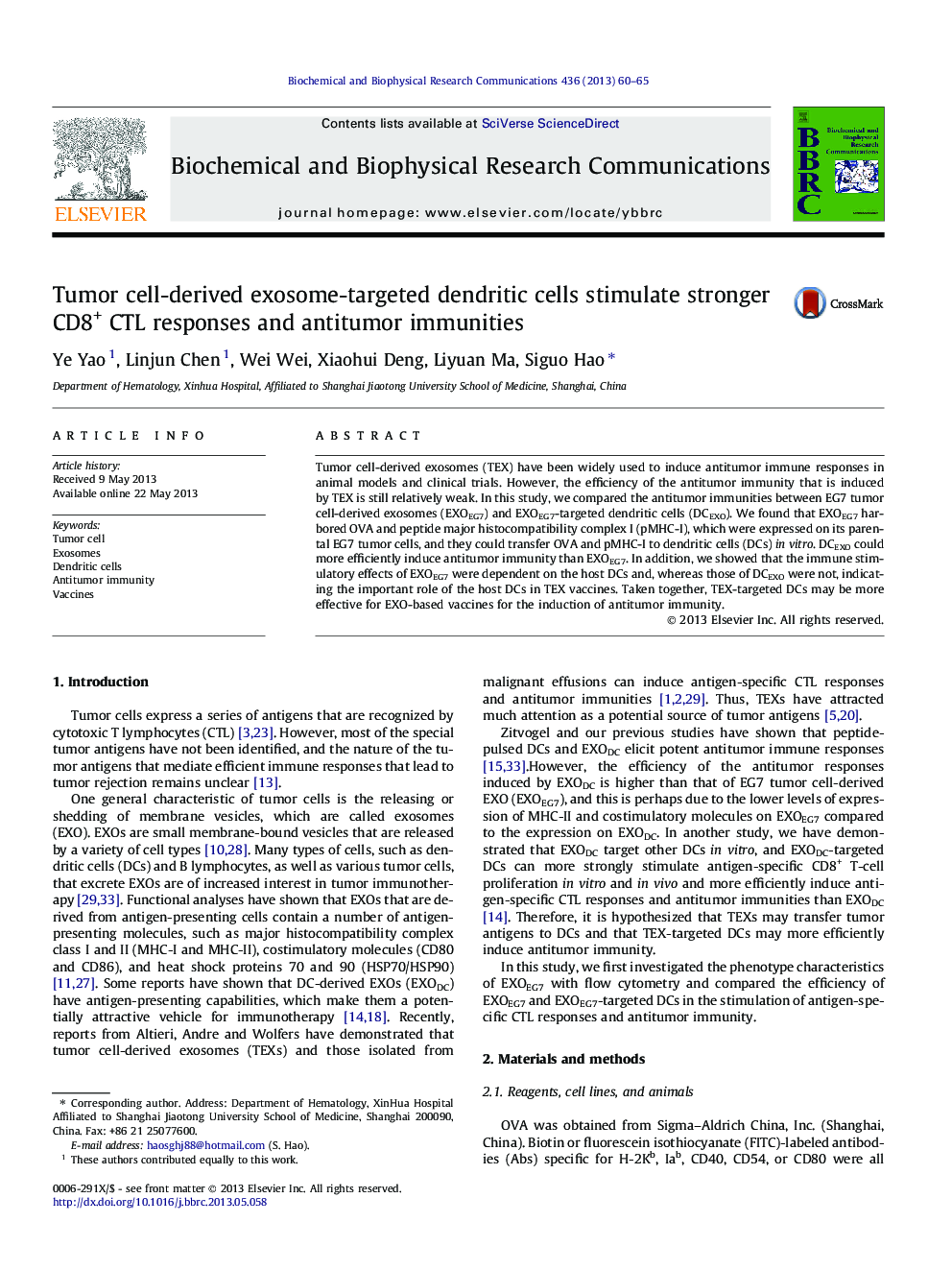| Article ID | Journal | Published Year | Pages | File Type |
|---|---|---|---|---|
| 10759458 | Biochemical and Biophysical Research Communications | 2013 | 6 Pages |
Abstract
Tumor cell-derived exosomes (TEX) have been widely used to induce antitumor immune responses in animal models and clinical trials. However, the efficiency of the antitumor immunity that is induced by TEX is still relatively weak. In this study, we compared the antitumor immunities between EG7 tumor cell-derived exosomes (EXOEG7) and EXOEG7-targeted dendritic cells (DCEXO). We found that EXOEG7 harbored OVA and peptide major histocompatibility complex I (pMHC-I), which were expressed on its parental EG7 tumor cells, and they could transfer OVA and pMHC-I to dendritic cells (DCs) in vitro. DCEXO could more efficiently induce antitumor immunity than EXOEG7. In addition, we showed that the immune stimulatory effects of EXOEG7 were dependent on the host DCs and, whereas those of DCEXO were not, indicating the important role of the host DCs in TEX vaccines. Taken together, TEX-targeted DCs may be more effective for EXO-based vaccines for the induction of antitumor immunity.
Related Topics
Life Sciences
Biochemistry, Genetics and Molecular Biology
Biochemistry
Authors
Ye Yao, Linjun Chen, Wei Wei, Xiaohui Deng, Liyuan Ma, Siguo Hao,
